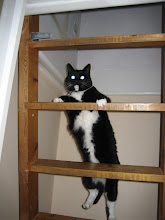musicmakers
Saturday evening was spent at a local amateur orchestra concert, performing an ambitious programme of Beethoven and Dvorak.
Classical music making is one of the cultural traditions of the Western world, and it is wonderful that so many people still make the effort to gather and rehearse and then perform, even if the standard is not quite Radio 3.
Everyone benefits, but probably most of all the performers, who enrich their knowledge of the music by becoming part of it, rather than just passive listeners.
But, in common with so many classical music concerts, both performers and audience were, with very few exceptions, seriously the wrong side of 50.
What can be done to encourage more young people, now that both the classical repertoire in schools and church youth attendance (and exposure to choral music) has declined? Perhaps it would help if concerts were made more relaxed in terms of the presentation, with the works to be performed introduced and explained. And also if the performers actually looked a bit more cheerful. No one seemed particularly happy on the stage - until the applause at the end.

